What is a Forex Introducing Broker (IB) / Affiliate?
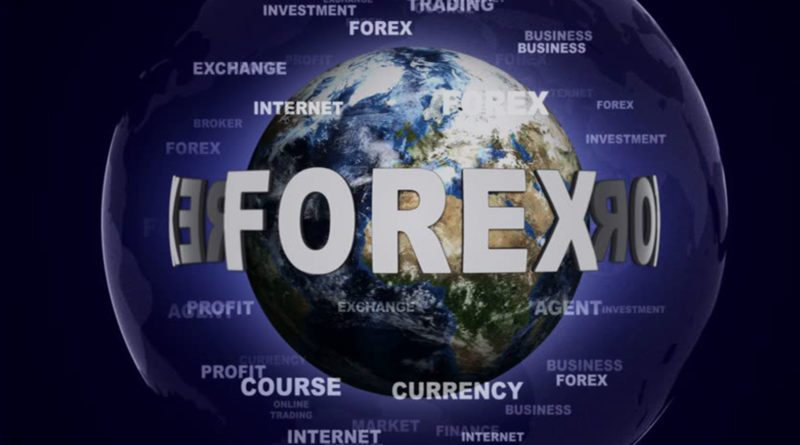
Even if you just begun trading forex, you’ve most likely seen that your broker offers an affiliate / introducing broker programme. Today we’ll outline how an IB / forex affiliate program works and also provide some tips for getting started.
Understanding the Forex Affiliate / Introducing Broker Business Model
The reason that you’ll often see forex brokers offering an affiliate / IB model is that direct marketing campaigns are not the only way that forex brokers generate revenue. An affiliate program is another way for a forex broker to grow their business. The advantage of such a model is that traders or those with marketing experience can generate additional income by receiving compensation for the new clients they refer, that’s essentially the IB model.
Different Forms of Compensation
introducing broker commission will vary from broker to broker. Some firms will pay a fixed price per new account signed up while others work purely on volume. The difference really depends on the regulatory status of the broker, the size of the IB and other factors. If this is something new to you, we can help you guide you in the process of becoming a forex IB.
An Entrepreneurial Approach to Forex Trading
Becoming a forex IB / affiliate is an excellent way to take advantage of the growth of online forex trading. Those who are looking to start their own brokers are encouraged to begin the process as an IB. You’ll gain the necessary experience as it relates to marketing without the overhead of regulation, staff, and reporting costs that can often burden new start ups.
Get Access to the Best Introducing Broker Program!
Our team at Forex Consulting is happy to guide you along each and every step of becoming an IB. In addition to guidance, we can help you find the best forex ib program to partner with.
To learn more, don’t hesitate to contact us today!
Is MetaTrader 4 (MT4) a Forex Broker?
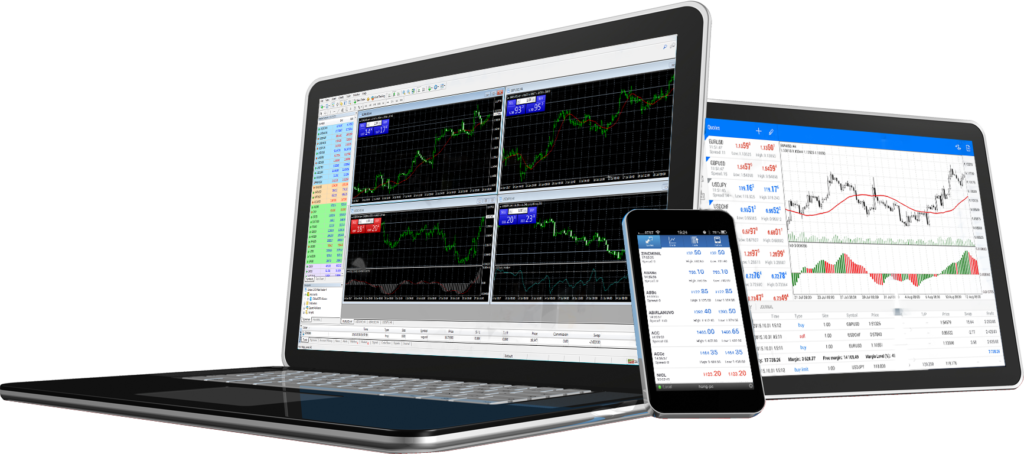
Those who are new to the world of online forex & CFD trading often come to us with the following question: is MT4 a forex broker? Even if you have only traded forex & CFDs for a short period of time, most likely you’ve come across the term MT4 before. With so many acronyms and jargon in the online forex trading industry, it’s normal to be overwhelmed with new terminology like MT4, MT5, or Expert Advisor.
The short answer to this question is no, MetaTrader 4 is not a forex broker. Often abbreviated as MT4, MetaTrader 4 is a software platform that is used by investors to trade forex & CFDs. To help new traders understand why MT4 is not a forex broker, we’ll explain how forex brokers use technology like MT4 to run their brokerages.
Why Is MT4 (MetaTrader 4) Not a Forex Broker?
MT4 is the trading technology that forex brokers offer to their clients for the purposes of trading. The ability to launch a forex broker cost effectively using what is referred to as a white label technology is the main reason MT4 grew in popularity.
Since we are on the subject of new terminology, you may ask, what is a white label? In simple terms, it’s a fully customized and branded version of the MT4 software. The key difference between technology like MT4 and a brokerage is that forex brokers use MT4 in order to launch their FX businesses. It’s worth repeating that MT4 is not a broker, rather a tool used by brokers to offer forex trading to their base of clients.
The MT4 White Label Process
How do new forex brokers take advantage of MT4’s white label technology? In order to use MT4, a new broker must first apply for a white label, a service that our team can also provide assistance with. Upon approval, the broker then provides MetaQuotes with their logo and company details. The end result is a fully branded version of MT4 software that reflects the broker’s logo and company name. This is what is known as a white label. If you’ve ever traded on an MT4 live or demo account, then you’ve already used a forex broker’s white label technology.
Forex Trading Technology is Not Limited to MT4 or MT5
It’s important to emphasize that MT4 and its counterpart MT5 are not the only trading technologies available in the marketplace. There are several alternatives to MT4/MT5 that are more cost effective yet offer the same advantages as MetaTrader. Furthermore, many of the alternatives to MetaTrader are easier to operate from a technical standpoint and offer more flexibility. If you are currently looking for a white label provider, our team of consultants can help you to explore some of these alternatives in more detail.
Forex Consulting – Forex Trading Technology Consultation & Expertise
Our many years of experience in the realm of online forex & CFD trading make the Forex Consulting team an ideal partner to assist your new broker in selecting a forex white label provider. Whether you wish to explore MT4/MT5 or consider an alternative trading platform, we are happy able to guide you along each step of the way.
Is There an Incentive to Be an Unlicensed Broker?

While performing research on trends in the online forex & CFD trading industry, we noticed that many have queried Google to determine whether there is an incentive to be an unlicensed forex broker. From our perspective, the answer is yes.
In today’s post, we’ll explore some of the incentives to initially start a forex broker without regulation. To get started, let’s consider the costs involved in obtaining a forex broker license.
#1. Cost Savings – One Incentive to be an Unlicensed Forex Broker
A major advantage in launching an unlicensed forex broker is the ability to save money during the early growth stages of the business. Obtaining regulation is expensive because nearly all regulated jurisdictions require a local office, staff, and reporting. Adding paid up capital into the equation, it shouldn’t be a surprise that regulation involves a significant commitment of capital.
We don’t encourage brokers to remain unregulated forever. Instead, we find the beginning stages of a broker’s launch to be incredibly important. In these early stages revenue is minimal which means that all expenses need to be carefully managed. From our perspective, a new forex broker should wait to see some positive revenue before jumping into licensing.
#2. Time Savings – Another Incentive to Launch an Unregulated Brokerage
Not only is regulation costly, it also requires a significant commitment of time. On average it takes roughly 7 – 9 months to obtain a forex broker license and in extreme cases such as licensing in Europe, could be well over a year before the license is issued.
A broker that opts to wait for regulation before going to market could lose out on almost a year of market activity. We once again emphasize that operating unregulated on a long term basis is not wise, however, does make sense in the beginning stages. In this case, launching a forex broker without regulation allows the new business to immediately take advantage of existing market opportunities.
#3. Test Out the Business Viability
An unregulated forex broker has the advantage that it can more easily focus on revenue generation. After all, if the business doesn’t work out in the end, did regulation make a difference?
Almost all of the major forex brokerages that exist in the marketplace today started off their journey as unregulated. The reason is that it makes more sense to test out the viability of the business model before committing more funds to regulation. From our perspective revenue from positive growth should be allocated to licensing, rather than being licensed from day one.
An unlicensed forex broker does not have to worry about the costs or work involved in maintaining a forex broker license. Nor does an unregulated forex broker have to dedicate the time to obtain a forex broker license or put up the necessary capital and other costs. It’s very cost effective and easy to operate unregulated.
Forex Consulting – Guidance in Launching a Forex Broker
Our team has the tools, knowledge, and market know-how to help you start a forex broker from A to Z. We provide the technology, liquidity, and banking services needed to start efficiently and quickly.
To learn more about launching a broker, don’t hesitate to contact us today!
Can You Trade Forex Without a Broker?

If you are new to trading forex & CFDs online, you may ask yourself, “what is the purpose of a forex broker?” More specifically, “do I need a broker to trade forex?” The answer to the this question is yes, you can trade forex without a broker and chances are you have traded forex before. As you’ll soon discover though, it’s probably not the type of trading you may have been thinking about.
We All Have Experience Trading Forex
If you’ve ever traveled to another country and exchanged money, then you’ve traded forex. Forex is simply an abbreviation for the term “foreign exchange” so whenever you have exchanged your US dollars for Euros or Australian dollars for Mexican pesos, then you’ve engaged in forex trading, albeit on a smaller scale.
The reason the above examples would be considered a “trade” is due to the fact that the values of currencies are constantly changing in relation to one another, so if you left a few Euro or dollars in your pocket after a vacation, you may be surprised to learn that they have either appreciated or dropped in value.
Exchanging Money vs Forex Trading
Those who are asking about trading forex without a broker are probably wondering if one can trade online forex without a broker. The answer to this question is no, and for a very important reason. The main advantage that forex brokers offer to investors is the concept of leverage.
The idea of leverage is simple. With a small deposit of funds, known as margin, you can magnify your trading ability. With 100:1 leverage you can trade up to 100,000 units of currency (EUR, GBP, JPY) without committing the full amount of money. Leverage always comes with risks, so bear this in mind.
The important distinction here is that without a forex broker, you would need $100,000 or the equivalent to make a similar transaction. In essence, that would be trading on 1:1 leverage, which isn’t what most investors are looking for. For the average investor this is simply unreasonable, so a broker is required to speculate in the forex market due to the leverage being offered.
Forex Consulting Services – Guidance in Selecting a Forex Broker to Partner With
One of the core services we offer is help in selecting a reliable forex broker to trade and partner with. If you require our assistance in selecting a reputable forex broker to open an account with, don’t hesitate to contact us today. We look forward to hearing from you!
Does It Make Sense to Start a Binary Options Business?
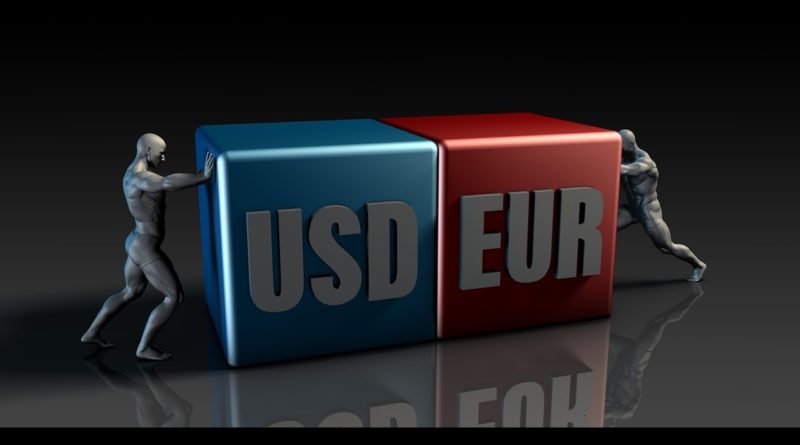
Binary options trading entered the global stage around the same time as online forex trading. Specifically, the emergence of firms offering binary options began in the mid 2000’s, reaching a peak roughly 10 years later. Although forex trading always had a stronger following, binary options was the closet thing to a competing service. In essence, binary options rode the coattails of the initial success of online forex trading but was never a serious enough product for long term sustainability.
During the boom period of the FX industry in the mid 2000’s, one could see binary options firms popping up at the same pace and sometimes even faster than online forex brokerages. In fact, many FX brokers diversified into binary options in order to capture a different market segment.
Starting in the mid 2010’s a combination of regulation and investor education marked the peak of binary options trading. It is our belief that the binary options industry is now defunct. We would strongly encourage readers and our clients to avoid launching a binary options business for reasons we’ll outline in today’s column.
#1 Why Did Binary Options Trading Die? – Regulatory Changes Are The Biggest Cause
Binary options trading is now illegal in almost all parts of the globe. Starting the mid 2010’s, regulatory changes in the United States kicked off the process which then spread to Europe and other parts of the world. Nowadays, almost every offshore jurisdiction prohibits binary options trading.
While a handful of financial service regulators still allow for binary options trading, global regulations have rendered it illegal to offer binary options in nearly all parts of the world. If you are looking to start a binary options broker, it’s important to ask how it will be possible to grow and develop a business that has been blacklisted by most of the world?
#2 Binary Options Trading Is No Longer Popular Due to a Lack of Liquidity
Liquidity, which can be understood as the pricing and execution of orders, is an essential aspect of forex trading. Because binary options trading is banned in nearly all parts of the globe, it is nearly impossible to find a liquidity provider, or pricing provider that will be willing to partner with a binary options firm.
Without the ability to obtain pricing or manage risk, attempting to start a binary options broker is now an uphill battle.
#3 Binary Options Brokers Face Banking & Payment Challenges
If the first two reasons weren’t compelling enough, consider the fact that no bank or payment service provider (PSP) will be willing to partner with an unregulated binary options broker. Unregulated forex brokers face tremendous hurdles when trying to secure a bank account, what chance then does a binary options broker have? From our perspective, it is just about impossible for a binary options broker to obtain either a bank account or PSP.
#4 Market Credibility
As a last thought, consider the overall reputation of binary options trading. The combination of regulatory actions and increased investor education, have resulted in binary options being associated with fraud and scams. Trying to convince investors to trade binary options will pose a massive challenge when just a little research points to the risks of this type of investment product. For this reason, we strongly encourage our clients to consider launching a forex brokerage instead of binary options.
Forex Consulting – Guidance & Consultation in Launching a Forex Broker from Scratch
For the reasons outlined above, we’d strongly discourage anyone from trying to start a new Binary Options broker. Not only is it illegal to take clients from most parts of the world, the industry itself is on a steep decline, making it difficult to find clients and grow the business. From our standpoint, the binary options industry is dead. Furthermore, even if you did try to launch an unregulated broker, there will be no banking services available as banks and payment institutions no longer cooperate with binary options brokerages.
We can offer 2 alternatives. The first is to consider offering traditional options trading, which mirrors the stock and futures market. The other idea is to start a foreign exchange broker, offering options as a supplementary service.
To learn more about our offering, contact us today!
Is it Safe to Trade Binary Options?
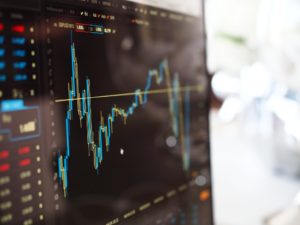
Many of the requests we receive on a daily basis are from those with limited experience trading forex and CFDs. As such, we are often asked questions about the legitimacy of certain trading products. Lately, we’ve received several inquiries pertaining to the legality and safety of binary options trading.
A common question we are asked is whether or not it is safe to trade binary options? In our opinion, the answer is a very firm NO. We do not believe it is safe to trade binary options, nor do we think that binary options are a legitimate investment product.
Why We Don’t Believe Binary Options Trading is Safe or a Legitimate Investment
It’s important to emphasize that binary options trading is now illegal in the United States and Europe, with many regulators in other parts of the world following suit. For those who are wondering if binary options trading is safe, one of the best reasons to avoid binary options trading is to consider the fact that most world regulators have chosen to ban or prohibit binary options completely.
No matter what sales pitch a binary options broker may use to win your business, it’s important to remember that binary options trading is illegal in almost all parts of the world. Because regulators in places like Europe and North America have banned binary options trading, the only binary options brokers that still exist are unregulated and unlicensed, making it an unsafe investment.

Binary Options Are Not a Real, Legitimate Investment
Due to the nature of the product, the trading of binary options isn’t profitable for nearly all investors. The reason is that binary options brokers intentionally skew the outcome of each trade to favor the broker, not the client. Even if a binary options trader were to get lucky with a few profitable trades, the broker would ensure that any trades in the future would end up at a loss to keep the profitability of the binary options broker consistent. For this reason, one can never become a successful binary options trader. Furthermore, there is no such thing as a professional binary options trader.
Investors Should Be Aware of Binary Options Fraud
We strongly discourage investors from opening an account with a binary options broker. The main reason behind our suggestion is that nearly all binary options brokers are unregulated. This means that there is no level of protection for the investor. Should a binary options broker cheat an investor or simply disappear with the funds, there is no legal recourse for the investor to take. In essence, it is simply not safe to trade binary options.
Forex Consulting – Guidance & Resources for New Traders and Investors
If you are interested in learning more about trading forex & CFDs, then we recommend avoiding binary options altogether. Because it is not safe to trade binary options, those looking to trade FX & CFDs for the first time should consider opening an account with a regulated forex & CFD broker.
Our group of FX industry consultants posses a strong network of regulated forex brokers around the globe. Contact us today to speak to a consultant who can guide you in selecting a forex broker that best suits your needs. We look forward to hearing from you!
What Happens When The Forex Market Closes? Why Is Forex Trading Closed on Weekends?

Due to our reputation as a leading consulting agency in the online forex and CFD trading space, we are often asked by new traders about what happens when the forex market closes. Before we jump into the answer, it’s important to understand that forex trading never really “closes.” What we mean by this statement is that one can always trade currency, even on the weekends. If you’ve ever been to an airport during the weekend, you’ll notice that the exchange booth is still open.
Why Is Forex Trading Closed on Weekends?
With this in mind, online forex trading is slightly different. Most forex brokers do not offer trading during the weekends, mainly due to a lack of liquidity. What this means in layman’s terms is a lack of demand.
If you have traded for only a short period of time, you’ll know that trading the Euro is most popular during the European and US market sessions but not so much in Asia hours. This is due to demand, meaning more governments, institutions and individuals exchange currency during normal business hours. Since the majority of institutions, governments and banks do not conduct much business during the weekend, the demand or liquidity is rather low.
Can I Leave Orders Open on the Weekend and What Happens if I Do?
Yes, it’s possible to leave orders open on the weekend, however, most brokers do not allow you to close them. The reason is simple: the market isn’t open. In terms of what happens to the orders, well this is going to depend on where the market is trading upon market open. Most forex brokers begin offering trading starting at 8AM in Australia hours, which is 6PM on Sunday in America and midnight in Europe. Often times the market can gap over the weekend, which is a risk to consider when leaving orders open past Friday.
Can I Trade a Currency When the Main Forex Market Is Closed?
No, because the market isn’t open, it’s not possible to trade until it opens again. The reason the majority of brokers don’t offer trading on the weekends is due to low liquidity, which we outlined above. There are a handful of brokers which do offer weekend trading, however, the spreads are often extremely high, which isn’t an ideal way to trade. For this reason, we don’t recommend trading on the weekends and suggest waiting until the market opens back up.
Forex Consulting Expertise – Guidance in Selecting the Best Broker to Trade With
If you are interested in trading forex online but don’t know where to start, schedule a call today with one of our specialists. We are happy to guide you through the process of selecting the best forex broker that meets your unique trading needs and requirements. We look forward to hearing from you!
What Is Scalping in the Forex Trading Market? Is FX Scalping Illegal or Legal?
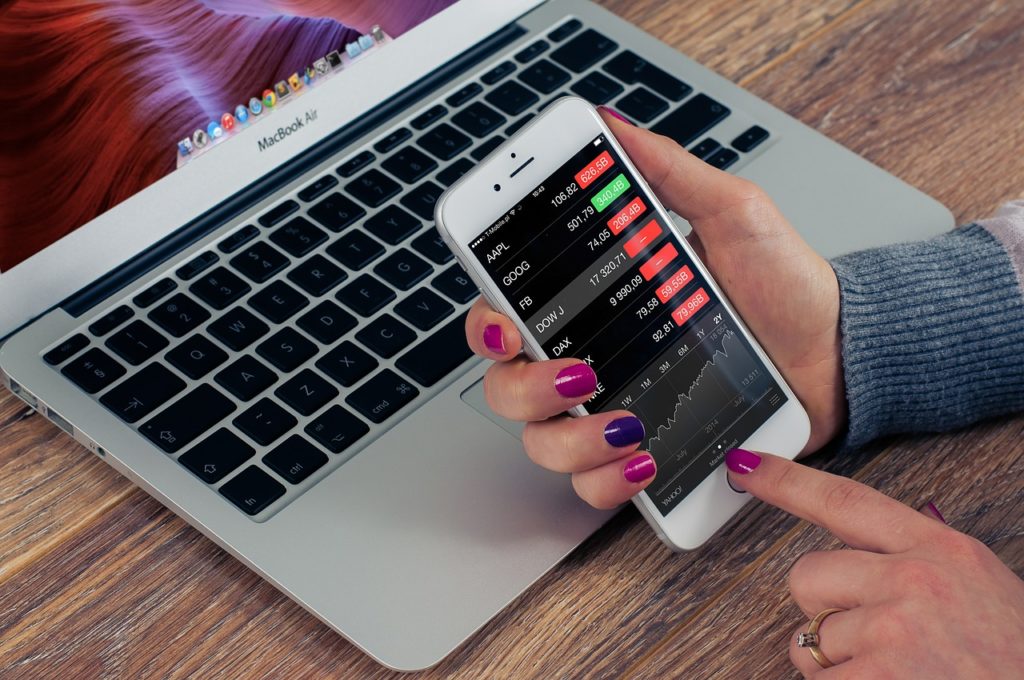
Scalping is a term that new forex traders may have encountered either on an FX broker’s website, social media post, or trading forum. At times, trading forex & CFDs can be overwhelming as there are many acronyms and industry terminology that both brokers and more experienced traders use in discussion. Such terms can often pose a roadblock for new forex traders who simply wish to better understand the market.
Today, we’ll define exactly what scalping is when trading forex so those who are new to the market have a better idea as to what this term is about.
What is Scalping in the Forex Market?
Scalping is a term used to describe a trading strategy that is very short term in nature. Those who have traded other financial markets like stocks or futures might assume this term refers to day trading. In fact, scalping usually refers to trades on an even shorter time basis than just a day. While there is no set time limit or duration when defining scalping, it generally refers to those who open or close trades within a matter of seconds.
Trading strategies that would fall under the definition of scalping can either be performed manually (without computer assistance) or by forex trading algorithms. Because trading algorithms, often referred to as EAs, have grown in popularity over the years, we are seeing more references to these systems when discussing the concept of scalping. The reason is that automated trading systems are capable of executing hundreds if not thousands of orders around the clock, a feat that would eventually tired out a human being.
Is Scalping in the Forex Market Legal or Illegal?
There is nothing illegal or even wrong with having an ultra short term trading strategy that may be referred to as scalping. Some forex brokers, however, do not like these type of trading systems and will often close down the account or take measures to prevent such traders from executing their strategy. For example, a common tactic to reduce scalping strategies is to widen the spreads for the client, thereby making the system unprofitable.
The reason some FX brokers do not like short term / scalping strategies is that their risk management team cannot effectively handle the order volume. In many cases this is due to the fact that the broker is not operating on an STP basis or their liquidity provider has issues with the strategy. This doesn’t necessarily mean the broker is bad, it’s just not a type of business they wish to have.
Is Scalping in the Forex Market Profitable?
Scalping strategies can be profitable but do entail a higher level of risk than other forex trading strategies. The main reason scalping strategies are riskier than others is that traders employing this strategy take advantage of high amounts of leverage. It only takes a single news event in the market to significantly reduce a trader’s profit; each time a scalping strategy opens a trading position, the risk of such an event happening is present.
We also mentioned in earlier that many brokers discourage these type of strategies. While it is not impossible to find a broker that allows scalping, many new traders may be disappointed when their strategy performs well on a demo account but not when it comes to live trading.
Forex Consulting Services for New & Experienced Traders Alike
If you are currently running a scalping strategy but are facing difficult finding the right broker to trade with, we can help. Our team of expert consultants can connect you to several brokers that would be happy to onboard you as a client. In addition, if you are completely new to FX and don’t know where to begin, feel free to contact us. We are happy to discuss your needs in more detail and then recommend several reputable forex brokers to trade with.
To learn more, simply fill out the contact form below. We look forward to hearing from you!
What is an Unregulated Forex Broker? Are Unregulated Forex Brokers Illegal?

If you are new to the world of forex & CFD trading, then you probably have already read about unregulated forex brokers. Even if you’ve come across the term before, you may still be curious to understand, what is an unregulated forex broker?
Since many of our readers have limited experience trading forex, we’d like to properly define exactly what an unregulated forex brokers is. In addition, we’ll also help you understand whether or not is illegal to trade with an unregulated forex broker. And, as a final thought, we’ll address a common question we often receive: are all unlicensed forex brokers scams?
What is an Unregulated Forex Broker? – A Basic Definition
An unregulated forex broker is simply an online forex & CFD brokerage that does not possess any type of financial license. This means that an unregulated forex broker is not legally authorised to offer forex & CFD trading services in any part of the world.
Just because a forex broker is unregulated doesn’t imply that the company has no physical footprint in some part of the world. In fact, it’s quite common to find that many unlicensed forex brokers are registered in offshore regions like St. Vincent & The Grenadines, or SVG for short. St. Vincent isn’t the only offshore region where unlicensed forex brokers register their businesses. Marshall Islands, St. Kitts and Nevis are some additional offshore jurisdictions where many forex brokers register their businesses.
Whether it’s Marshall Islands or St. Vincent, unregulated forex brokers opt for these regions because they are inexpensive and quite easy to establish. It’s worth noting that even though a forex brokerage is not licensed, it is perfectly legal for the company to operate out one of these offshore jurisdictions.
Are Unregulated Forex Brokers Illegal?
Unregulated brokers themselves are not undertaking any illegal activity since operating an unlicensed forex broker in a region like St. Vincent (SVG) is not against the law. With that said, some financial regulators do not allow unlicensed forex brokers to target their citizens. In the United States, for example, it is against the law for an unlicensed, offshore broker to accept account applications from US citizens.
Is it Safe to Trade with an Unregulated Forex Broker?
The answer to this question depends on each investor’s own tolerance for risk. Bear in mind that even a forex brokerage registered in St. Vincent or other regions must undergo some basic due diligence by the local authorities. It’s also worth mentioning that many of the largest forex brokers we currently see in the marketplace started off as unregulated. Nevertheless, unlicensed forex brokers do not offer any type of financial protection to their investors. If you are seriously concerned about the safety of your funds, then do not trade with an unregulated forex broker.
Why Would Anyone Trade with an Unregulated Forex Broker? Are Unregulated Brokers Scams?
The answer is that the regulation of forex activity has increased across the globe in recent years. In Europe, Asia and Australia, leverage on forex & CFDs has been reduced by local regulatory bodies making forex trading less attractive for those investors who have grown accustomed to higher leverage.
As such, some traders seeking leverage greater than 30:1 accept the risk of trading with an unregulated forex broker in exchange for greater account flexibility. Additionally, unregulated brokers often are able to offer deposit / “no deposit” bonuses along with other promotions and giveaways that are now illegal in many parts of the world. Consider some of these reasons when you are asking yourself why someone would trade with an unregulated forex broker.
Not all unregulated forex brokers are scams but investors must proceed with caution. For the reasons mentioned previously, there will always be safety of funds and reputation concerns with any unregulated forex broker. Furthermore, many unlicensed brokers never end up growing or obtaining a license, meaning that you should only consider opening an account as a temporary option. If you uncertain whether or not to trade with an unregulated forex broker, then it’s best to get in touch with our team of consultants today. We are more than happy to guide you in the decision process.
Forex Consulting Services – Helping Traders Select the Best Brokerage to Meet Their Needs
If you are looking to open an account with an unregulated forex broker but aren’t certain about the risks, we are here to help. Our team of forex industry experts are more than happy to address your questions about forex regulation and also recommend some licensed and highly reputable forex brokers to consider trading with.
To learn more about trading with a regulated forex brokerage and the risks of opening an account with an unregulated forex broker, don’t hesitate to contact our team today!
What is 1:1 Leverage When Trading Forex?

The concept of leverage in the online forex trading market can be one of the most challenging to understand. This is especially the case as it relates to the concept of margin. We’ve been approached by several of our clients who are curious to understand how 1:1 leverage works when trading forex. Given how often this question comes up in discussions, we’d like to share a detailed answer with our global audience.
1:1 leverage simply means that one is trading forex without any type of leverage at all. In practical terms 1:1 leverage means that if you were to exchange 1,000 Euro for the equivalent in dollars, you would need to exchange the full amount.
How Does 1:1 Leverage Work In the Forex Market?
To better understand this concept, let’s imagine that you find yourself at the airport currency exchange booth. If you’ve ever exchanged money at an airport before, then you are essentially trading on 1:1 leverage.
Taking the example further, let’s say that you exchange 500 worth of Euro for US dollars during a visit to the United States. Unfortunately, let’s imagine that you misplace the money you exchanged, only discovering it in your clothing after returning from your holiday. When you look at the exchange rate of the dollars you purchased, you discover that the dollar strengthened significantly during your travels, so when you exchange your money back at your bank, you receive 580 Euro, netting a small profit.
In this hypothetical example, you made a trade on 1:1 leverage. Most likely you wouldn’t look at it in this way but in essence, you fully exchanged one sum of money for another – that is essentially 1:1 leverage, which in other words means no leverage at all.
The Advantage of Leverage When Trading Forex
The reason that leverage in the forex market exists is due to the fact that the price of currencies do not exhibit major price fluctuations on a daily basis. Generally speaking, the Euro only moves 1 or 2 cents from day to day against the US dollar. For this reason, there is little potential for financial gain when exchanging 100, or even 500 Euro on a short term basis. Going back to our example, a profit of 80 Euro was made which is a rather extreme case for even a couple weeks of trading.
The only way to realize any significant financial profit when trading forex online is to trade a larger amount such as 1,000 or 10,000. This is where the concept of leverage enters the picture. Via leverage, investors are able to maximize returns (and also losses) by having more available capital at their disposal.
Let’s consider another example. Imagine trading with a broker that is offering 100:1 leverage. Essentially, 100:1 leverage would allow an investor to trade up to 100,000 units of currency (US dollars, Euro, or British pounds). The beauty of leverage is that the investor in our example would only need to deposit $1,000 of their own money as margin in order to control up to 100,000 of purchasing power! This is why it doesn’t make sense for a broker to offer 1:1 leverage. Imagine for a moment that leverage wasn’t available, if an investor wished to perform the same transaction on 1:1 leverage, they would need to have $100,000.
Forex Consulting – Consultation Services for New and Experienced Traders Alike
We hope this article was helpful in your understanding of leverage. If you are new to trading forex online and looking for the right broker to partner with, we are happy to assist you.
Due to our strong network and industry experience, we are glad to connect you to several We are more than happy to reliable and trustworthy forex brokers. Get in touch with us today to explore this opportunity further!






